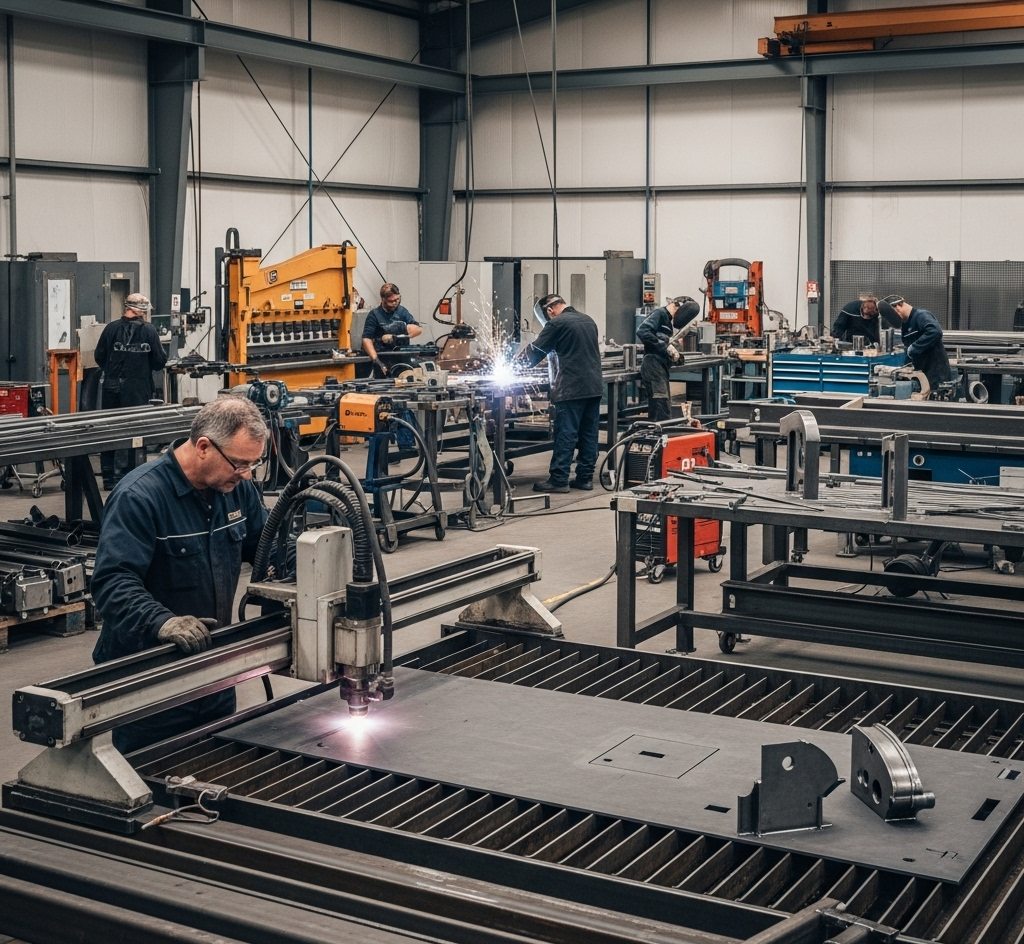
The metal fabrication industry, rooted in precision and efficiency, is undergoing a transformative shift with the advent of digital procurement. This evolution streamlines processes, reduces costs, and enhances supplier relationships through technologies like Request for Quote (RFQ) automation and artificial intelligence (AI). Below, we explore how digital procurement is reshaping metal fabrication, from automating RFQs to leveraging AI for smarter supplier management.
Traditional procurement in metal fabrication often involves manual processes—phone calls, emails, and spreadsheets—to manage RFQs, supplier selection, and order tracking. These methods are time-consuming, error-prone, and lack scalability. Digital procurement addresses these challenges by integrating technology to automate and optimize the supply chain.
The RFQ process is the backbone of procurement, but manually drafting, sending, and comparing quotes can take days or even weeks. RFQ automation platforms streamline this by:
Centralizing Quote Requests: Cloud-based tools allow fabricators to create standardized RFQ templates, ensuring consistency and reducing errors.
Real-Time Supplier Responses: Suppliers receive and respond to RFQs instantly through digital portals, cutting down lead times.
Data-Driven Comparisons: Automated systems analyze supplier bids based on price, lead time, quality certifications, and past performance, enabling faster decision-making.
For example, platforms like Xometry or Protolabs integrate RFQ automation, allowing fabricators to upload designs, specify requirements, and receive quotes from a network of vetted suppliers within hours. This reduces the procurement cycle from weeks to days, improving project timelines.
Beyond RFQ automation, AI is revolutionizing how metal fabricators select and manage suppliers. Supplier AI leverages machine learning and data analytics to enhance decision-making and foster resilient supply chains.
Predictive Supplier Selection: AI algorithms analyze historical supplier data—such as delivery performance, quality metrics, and pricing trends—to recommend the best partners for specific projects. For instance, if a fabricator needs high-precision CNC machining, AI can prioritize suppliers with a proven track record in tight tolerances.
Risk Mitigation: AI tools monitor global supply chain risks, such as material shortages or geopolitical disruptions, and suggest alternative suppliers. During the 2021 steel shortage, AI-driven platforms helped fabricators pivot to suppliers with available inventory, avoiding costly delays.
Dynamic Pricing Insights: AI analyzes market trends, raw material costs (e.g., steel, aluminum), and supplier capacity to provide real-time pricing recommendations. This ensures fabricators secure competitive rates without extensive negotiations.
Supplier Relationship Management: AI-powered systems track supplier performance metrics, such as on-time delivery rates and defect percentages, to build stronger, data-driven partnerships. This fosters trust and long-term collaboration.
While digital procurement offers immense potential, adoption comes with challenges:
Integration Costs: Implementing automation and AI requires upfront investment in software and training.
Data Security: Cloud-based platforms must comply with cybersecurity standards to protect sensitive design and pricing data.
Supplier Onboarding: Not all suppliers are tech-savvy, requiring fabricators to support their transition to digital systems.
To overcome these, fabricators can start with pilot programs, adopting tools incrementally and partnering with platforms that offer robust support.
As Industry 4.0 gains momentum, digital procurement will continue to evolve. Emerging technologies like blockchain could enhance transparency in supplier contracts, while IoT-enabled devices might provide real-time data on supplier inventory and machine availability. AI will also become more sophisticated, offering predictive analytics for demand forecasting and automated contract negotiations.
Digital procurement is no longer a luxury but a necessity for metal fabricators aiming to stay competitive. RFQ automation streamlines the sourcing process, while supplier AI empowers smarter, data-driven decisions. By embracing these technologies, fabricators can reduce costs, improve efficiency, and build resilient supply chains. The future of metal fabrication lies in harnessing digital tools to create a seamless, intelligent procurement ecosystem.
© 2025 Lasso Supply Chain Software LLC
Get instant access to our report on the Top Procurement Trends of 2025.
Get instant access to our report on the Top Procurement Trends of 2025 by filling out the form below.
